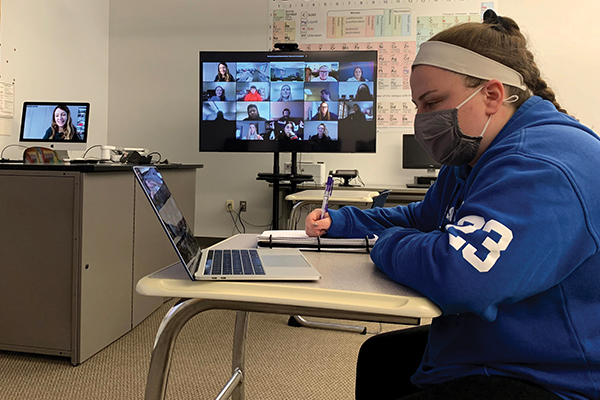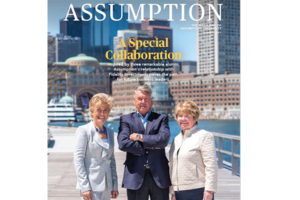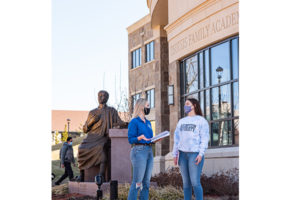
When Associate Professor of Biology Aisling Dugan, Ph.D., was developing her special topics course for the spring semester, she sought to create linkages to the global pandemic and its impact on the local community.
“We’re living through a pandemic, which is a pretty remarkable experience and something that is affecting us all so much, including many of my students personally, so I decided to add a community service-learning element to the course to get the students involved in the city’s pandemic response,” Prof. Dugan explained, adding that she reached out to partner with the City of Worcester Division of Public Health’s (WDPH) Academic Health Collaborative to train students to become contact tracers. “This unique way of learning about pandemics provides students with relevant opportunities to become contact tracing volunteers or pursue additional roles in the City of Worcester’s coronavirus response.”
The upper-level biology course, Infectious and Epidemic Disease, explored the history, epidemiology, and clinical and biological elements of significant epidemics such as smallpox, cholera, the plague, tuberculosis, coronaviruses, and the current global health crisis. In addition to the coursework, staff from the WDPH Academic Health Collaborative mentored students as they completed the Johns Hopkins University contact tracing program and the Massachusetts training program, MAVEN, then deployed the students to serve as contact tracers late in the semester and as summer interns.
“Through this innovative collaboration, Assumption students engaged in actual projects and research related to the COVID-19 pandemic, rather than conducting hypothetical research and coursework,” said Kelsey Hopkins, coordinator of the city’s Academic Health Collaborative. “We’re grateful for the partner- ship with the University and the willingness of the students to help the Health Department in its fight to defeat COVID-19.”
Hopkins explained that the WDPH team of 25 individuals focuses on a range of issues relative to public health and the pandemic, and requires additional resources to adequately administer a comprehensive contact tracing program. The city relies on the generosity of trained volunteers and community partners, including college students.
Patrick Travaglio-Romeo ’21 is one of those students – he volun- teered to register individuals at the Worcester Mercantile Center COVID-19 testing site during the spring semester – and appre- ciated the opportunity the course offered him to engage in and support the community. “The community service-learning aspect allowed me to step out of the classroom and into something that actually helped people. It is definitely meaningful and something that Assumption is really good at,” he said.
Temi Falayi ’21 said the course provided relevant skills that would be useful in her future nursing career. “I feel like what we learned was very practical, was something I can use at any time,” she said. “A class like this keeps you interested because you’re able to practice what you learn in the classroom in real life.”
Falayi, who will begin the nursing program at Emory University in Atlanta after graduation, has become inspired through the pandemic to pursue a career in healthcare. She learned valuable information about coronavirus through the course. “I feel like we just need more education and more people learning about contact tracing to enhance understanding of how to thwart the transmission of infectious diseases like coronavirus.”
Prof. Dugan said she has many students like Falayi who are interested in pursuing graduate work in health professions, and that this course allowed them to make connections between academic work and real life. “I think showing them that their work can improve the health of people in their community is not only meaningful but really important. It’s about helping our students make that connection from the classroom to the community.”


